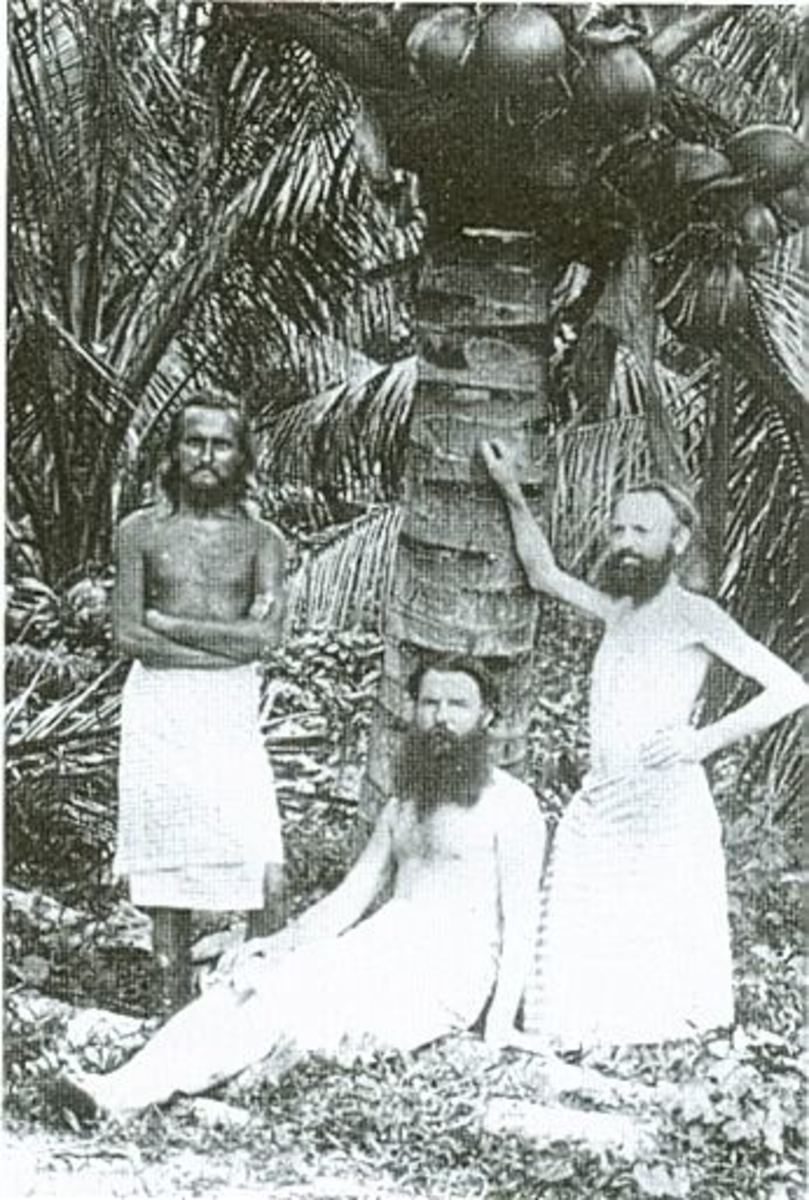August Engelhardt (1875–1919) was a German visionary and founder of the “Sonnenorden” (Sun Order) community, known for his radical beliefs in natural living and the worship of the sun. Born in Nuremberg, Germany, Engelhardt studied economics and philosophy before embarking on a journey that would lead him to the South Pacific. Inspired by the writings of August Hermann Niemeyer and his own interpretations of Nietzschean philosophy, Engelhardt developed a fervent belief in the healing and spiritual powers of sunlight and a fruitarian diet. In 1902, he established the Sonnenorden community on the island of Kabakon in German New Guinea (now part of Papua New Guinea). Engelhardt’s community aimed to create a utopian society based on principles of natural living, sun worship, and a strict fruitarian diet. Members of the Sonnenorden lived in harmony with nature, eschewing clothing and consuming only coconuts and other fruits. Despite initial enthusiasm, the community faced numerous challenges, including conflicts with local indigenous populations and the harsh realities of tropical living. Engelhardt’s unwavering commitment to his beliefs eventually led to his downfall. In 1913, German authorities intervened and forcibly removed him from Kabakon, citing concerns for his health and the welfare of his followers. Engelhardt returned to Germany, where he continued to advocate for his unconventional lifestyle until his death in 1919.
August Engelhardt
